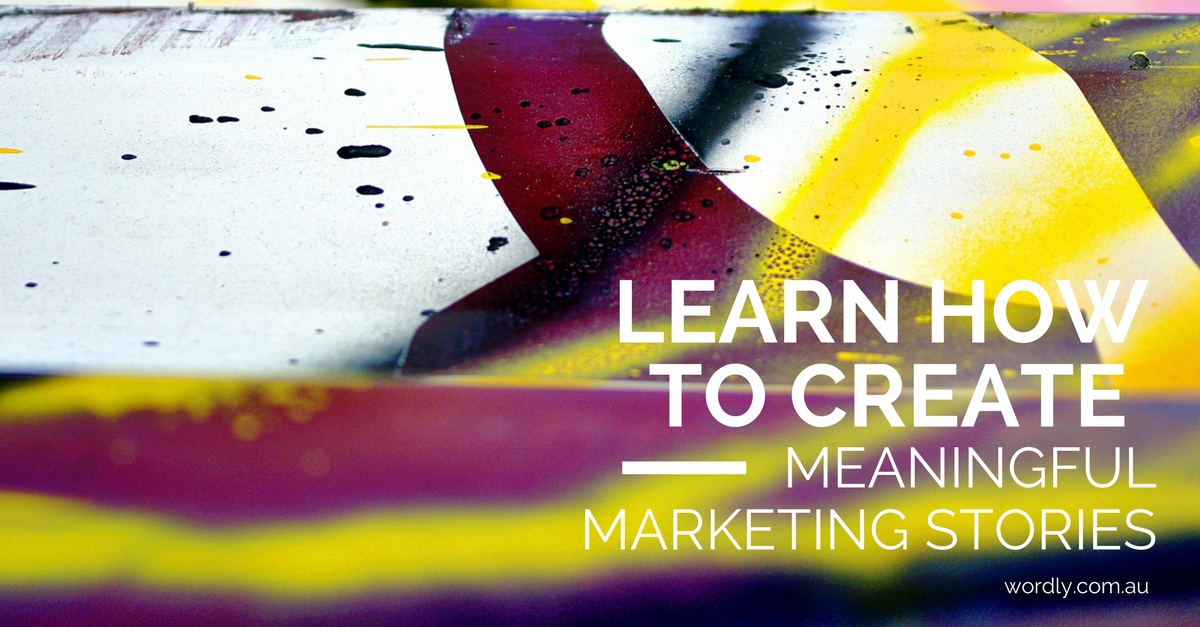The spheres of marketing and storytelling are inextricably linked. Why? Because the two have the same goal – forming a connection that facilitates the sharing of a message.
Storytelling is the most ancient form of mass connection. Ancient storytelling allowed messages, values and beliefs to be passed from generation to generation – as in the stories of the travelling troubadour of Medieval France or the Dreamtime.
The marketer has to be a storyteller. It’s not enough to merely list the benefits of a product or a company or service; instead, the marketer has to weave all of those elements into the plotline of a story that will leave a mark on the audience. The way to do this is to create meaningful marketing stories. Stories that resonate with your audience and act as something more meaningful than a blatant advertisement.
Sonia Simone’s article The 5 Things Every (Great) Marketing Story Needs is an illuminating piece on the subject of marketing storytelling. Today, we take a look at her theory on how to create a meaningful marketing story.
The Hero
In a marketing story, the hero isn’t a sword-wielding, horse-riding, dragon-slaying superhero. The hero is the customer. Your marketing story must be centred around your customer. Your customer has to experience the changes of the story and reach the desired conclusion—the sale. Just as Hercules had to complete the 12 labours, the hero has to take the twists and turns that you set out for them in order to win the Golden Fleece.
A Goal
The goal of a marketing story is twofold. It is the final destination (the sale), but it is also the process of reaching the sale. You need to set out your goals before you create your story. How can your product or service help the hero? How can it influence their journey? Why should they choose your product when they reach the forked-road? This is crucial in creating a meaningful connection with your customer. The customer will not go on a journey with you unless they feel as though they will come out the other side as a better person.
Conflict
You need to establish a conflict. This is the thing standing between the customer and where they want to be. It could be an obstacle. It could be the customer’s pain point. Whatever the case might be, the customer needs to feel as though only you have the answer. Only you hold the key to the heavy, locked door. If your customer wants to look younger, you need to explain what is ageing them and how only you can slow it down. If they want to get healthier, you have to show what’s holding them back and how you can help to navigate these challenges.
Mentor
Every good story has a mentor, a figure of wisdom that helps the hero to reach their goal. The best mentors empower the hero rather than tell them directly what to do. Socrates didn’t spoon feed his pupils. Instead, he asked them question after question, allowing his pupils to come to understand the power of wisdom themselves.
In a marketing story, you are the mentor. You need to subtly guide the hero through their journey and assist them in reaching their goal. If you cross the boundary and become a coach rather than a mentor your hero may quickly stray from the path you have set out for them and choose the friendlier, less pushy path.
The Moral
Marketing stories aren’t the place for twisted tales full of ambiguities. Make the moral of the story (the goal, the conflict and the mentor) as obvious and as transparent as possible.
Aside from these plot points, you should also keep the following things in mind when crafting your marketing story:
- The Connect: There is no exact science to this as it is probably the most difficult thing to achieve. A connection isn’t tangible, but the best way to accomplish this is to try and understand your customer and pin down the things that resonate with them. This understanding is crucial to your role as the mentor throughout the story.
- Find Your Niche: All stories are variations on another story. There isn’t such a thing as a unique story, but there is such a thing as unique companies, people and services. Use the format of the story to voice what makes you unique.
- Simplicity: As mentioned above, there is no room in marketing stories for the abstract. You don’t want there to be any guesswork involved on behalf of the customer. Find your message and make it loud and clear.
- Shareable: A good marketing story will be created in such a way that the customer feels it is just for them. It will also be shareable because stories are supposed to be shared. Shareability comes down to the medium you choose to present your story in. Videos and images are the most easily shareable, so consider a visual story if you really want to get some circulation going.




